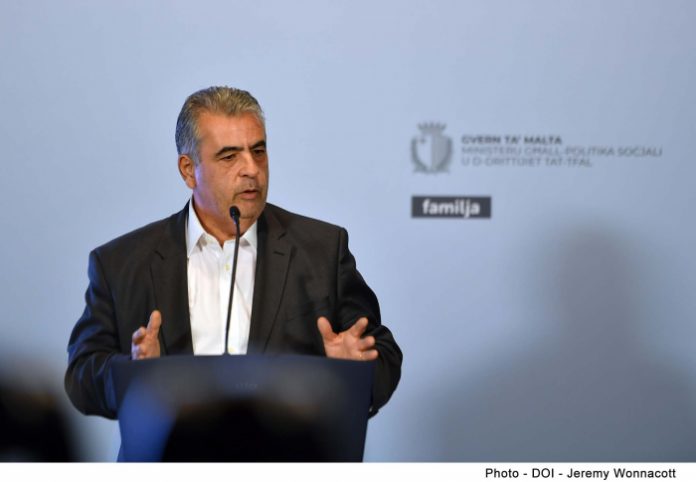
A study on the benefit tapering scheme showed how the scheme doubled the possibility of social beneficiaries finding employment and the ones who benefited the most in this regard were unmarried single parents.
The Gozitan beneficiaries were among the most successful in finding work opportunities. The study was carried out by a Central Bank economist, Kurt Sant, as part of his thesis to obtain a Masters degree from the Vrije University of Amsterdam.
The tapering scheme was one of the main measures in the package presented in 2014 to wean more people from dependence on social assistance. It was designed so that people who have been relying on benefits for some years are encouraged to find a job and instead of immediately losing the benefits they were entitled to, they will be reduced gradually over a period of three years. The reduction rate in the first year will be 65% of the benefit, 45% in the second year and 25% in the third year. During the three years, the employer takes 25% of the benefit.
In the first year of the scheme, around 500 people benefited from this incentive. Their number continued to grow in the following years until it reached its highest level in 2017 with 2,600 beneficiaries.

Mr Sant spent five months of this year researching the results obtained from the scheme. In a presentation he made on the conclusions of his study, Mr. Sant stated that without a doubt the scheme was a success not only because the beneficiaries moved away from dependence on social benefits but because in the majority of them they remained in the world of work even after the three years of the scheme had passed.
He said that a key success factor was the way the scheme was designed which focused mostly on that group of people who for a long time depended on the benefits. He explained that although the economic growth together with the free childcare scheme and fiscal incentives helped to give a boost, the scheme as designed would still have a positive effect even without these factors. Even when one considers the results obtained in other countries in similar schemes the impact of the Maltese one was more positive.
The study found that the scheme had less effect among beneficiaries on social assistance mainly due to the fact that among them there are people who, despite the incentives offered by the scheme, due to conditions of illness and other difficulties, are still not easy for them to employ themselves.
An interesting point that emerged from the research was that the scheme helped not only people who may not have had enough skills to overcome the obstacles to enter the world of work but also technical and professional people who, although with a good education, may not have did they have the skills in digital technology that the world of work demands today.
The study found that even though people who were self-employed find it difficult to cut off benefits and find a job, the scheme has strongly helped these people not only re-enter the world of work but also remain in employment. In his study, Mr Sant made several observations on how the scheme can be kept up to date to continue attracting beneficiaries.
Among other points, he mentioned the fact that among unmarried single parents there is a percentage of them who stop working after the term of the scheme ends. In the background of this he suggested that for this group of beneficiaries the term of the scheme be extended by another year.
The Minister for Social Policy and Children’s Rights Michael Falzon stressed that the Government will remain committed to strengthening the labor market, to offer better opportunities and above all to maintain a balance between work and a family. “This is a sensitive Government that understands and addresses the realities of the people. We will continue to feel the pulse of the people and adjust our policy according to the realities of the day. A healthy society is one that addresses the needs of even the smallest minorities in our society”, concluded Minister Michael Falzon.









